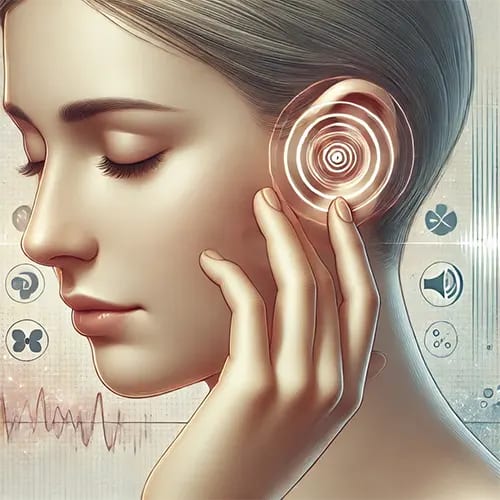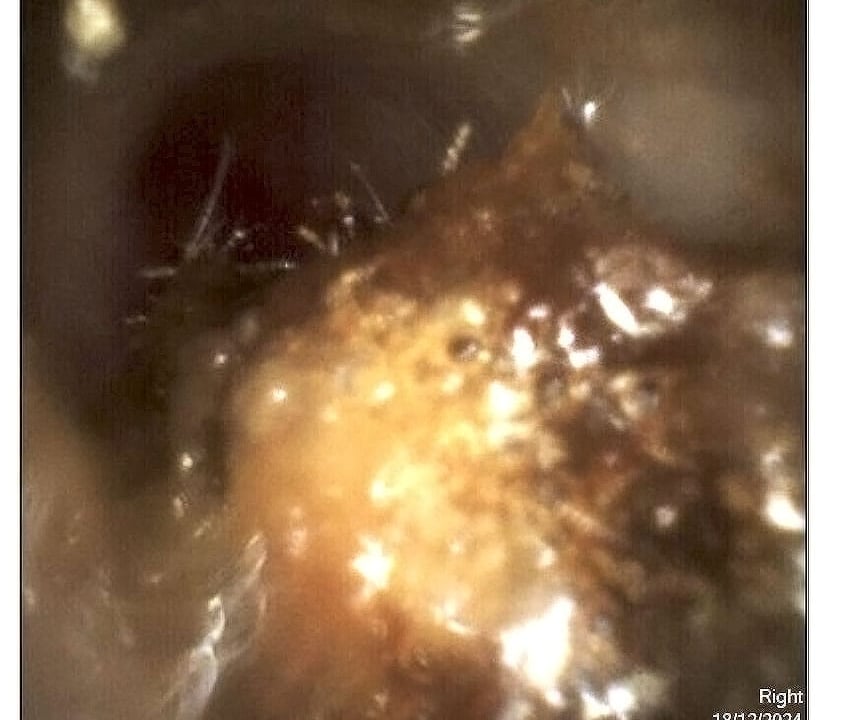A clogged or blocked ear can be more than just an inconvenience. It can affect your hearing, balance, and even cause discomfort or pain. While clogged ears are often harmless and temporary, understanding why they occur and knowing the steps you can take to relieve them can help you feel more comfortable and confident about managing the issue. Here’s what to know and what to do if your ear feels clogged.
Common Causes of a Clogged Ear
Before diving into the remedies, let’s look at some common reasons why you might experience that blocked-ear sensation:
- Earwax Build-up: Earwax, or cerumen, is a natural substance produced by glands in your ear canal to protect it from dust and debris. However, sometimes it can build up and harden, causing a blockage.
- Eustachian Tube Dysfunction: The Eustachian tube connects your middle ear to the back of your throat, helping regulate pressure in the ear. If it becomes clogged due to a cold, allergies, or sinus infection, you might feel a sense of fullness in your ear.
- Changes in Altitude: Known as “ear barotrauma,” changes in altitude – such as when you’re flying, driving up a mountain, or even riding an elevator in a tall building – can create pressure imbalances, leading to a feeling of ear blockage.
- Fluid in the Middle Ear: Infections or colds can cause fluid to accumulate in the middle ear. This fluid can disrupt sound waves, leading to a feeling of fullness or even temporary hearing loss.
- Swimmer’s Ear: Water trapped in the ear after swimming or bathing can create a plugged feeling and sometimes lead to infection if not treated.
- Underlying Medical Conditions: Less commonly, a clogged ear may indicate a medical condition, such as Meniere’s disease, that affects the inner ear.
At-Home Remedies for a Clogged Ear
If you experience a clogged ear, try these simple methods at home to help alleviate the blockage:
- Yawning or Swallowing: These actions help open the Eustachian tube and equalise pressure in the ear. Sipping water, chewing gum, or sucking on a hard candy can encourage swallowing and may relieve mild cases of ear clogging.
- Valsalva Manoeuvre: Pinch your nostrils shut, close your mouth, and gently blow. This technique can help open the Eustachian tube and release trapped air. Be cautious not to blow too hard, as this could damage your eardrum.
- Warm Compress: Placing a warm compress over your ear can relieve congestion caused by colds, sinus infections, or fluid build-up. The warmth helps to ease pain and encourages fluid drainage.
- Steam Inhalation: Breathing in steam from a bowl of hot water or a warm shower can help alleviate ear congestion, particularly if it’s due to a cold or sinus issue.
- Over-the-Counter Ear Drops/Spray: If earwax build-up is the suspected cause, try over-the-counter ear drops or spray such as CleanEars, which are designed to soften wax. Avoid inserting objects like cotton swabs into the ear, as this can push the wax further in and potentially cause injury.
- Ear Popping Exercises: Special exercises, like the Toynbee manoeuvre, where you pinch your nose and swallow simultaneously, may help balance pressure in the ears, particularly if altitude changes are the cause of the blockage.
When to See a Healthcare Professional
While most cases of ear clogging are temporary, some situations call for professional help. You should see an audiologist or ENT specialist if:
- The clogged feeling persists for more than a few days
- You experience pain, dizziness, or fluid drainage from the ear
- You have significant hearing loss or a ringing sound in the affected ear
- The earwax build-up does not resolve with over-the-counter treatments
Persistent or recurrent clogged ears could signal an underlying condition that requires further evaluation and specialised care. Your audiologist can assess the issue, offer safe wax removal solutions, and recommend treatment options tailored to your situation.
Preventing Clogged Ears
Here are some preventative tips to reduce the chances of future ear blockage:
- Avoid Using Cotton Swabs: Many people use cotton swabs to clean their ears, but these can push wax further into the ear canal and cause blockages. Stick to gentle, external cleaning, or consult a professional for regular ear care.
- Stay Hydrated and Avoid Smoking: Proper hydration can help prevent mucus build-up, and avoiding smoking can reduce the likelihood of sinus congestion, which can impact the Eustachian tube.
- Protect Your Ears from Water: Use earplugs when swimming or showering to prevent water from getting trapped in your ears, especially if you’re prone to swimmer’s ear.
Hearing Care at The Audiology Place
If you’re experiencing persistent ear discomfort or hearing loss, consulting an audiologist can provide clarity and relief. At The Audiology Place, our experienced team, led by Dr. Signe Steers, specialises in diagnosing and treating a variety of ear and hearing-related concerns. Whether it’s earwax management, treating Eustachian tube dysfunction, or providing expert guidance on hearing health, we are here to help.
Contact us today to book a consultation and get to the root of your ear discomfort. Your hearing is important, and a clear pathway to comfort is just a call away.





